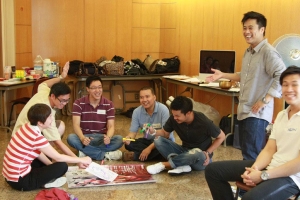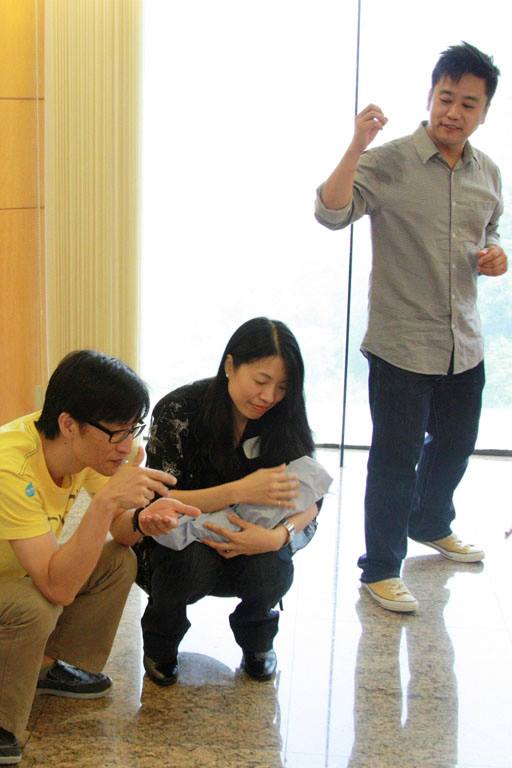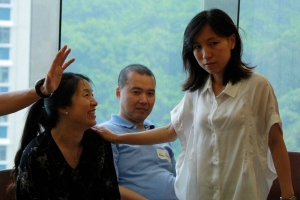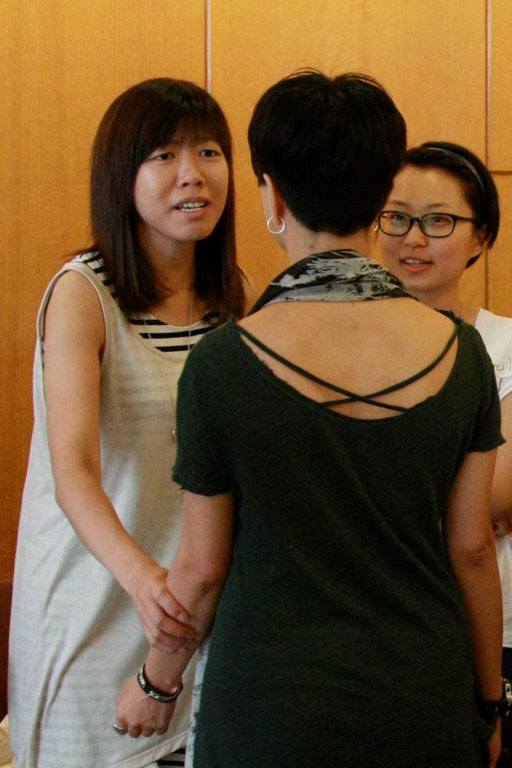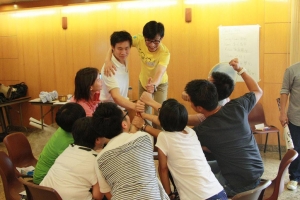“Drama Education” is described to be a new and effective tool for adult learning. One of the commonly used method in adult learning is “Process Drama”. Process drama is a whole-group drama making process, improvised in nature, in which attitude, not skills, is of greater concern. Participants in process drama will not normally learn and present lines from a play, but will be “writing” their own play as the drama unfolds through action, reaction and interaction.
Participants in process drama take on roles that for the exploration of the subject matter of the drama, which is a metaphor of the real world, designed by the trainer-facilitator. Trainer-facilitator connects the participants with the content, engage them, enable them to develop responses to it, and eventually reflect on the experience and bring positive changes at workplace.
可以反觀/比較活動中自己和別人的做法及現實生活中的情況,看到自己缺乏的、不足夠的地方。
Can reflect/compare between me and others, and how we work here and in reality; can be able to see what I am lacking.
最後討論環節能有效地回應劇演的內容從而反思探討的問題。
The discussion at last can effectively reflect on the drama and thus on the topic we want to go into.
透過戲劇中的經驗和討論重新思考領袖的角色。利用Drama令參加者的特質自然流露,也令參加者投入當中。體驗到Drama Education短時間內讓大家經驗一些特別的歷險。
I rethink the role of leaders through the drama experience and discussion thereafter. Using drama, we become ourselves, and we also engage in it. I can experience how drama education lead us have a special experience.
由於角色對白即場爆肚,所以當中其實也能反映參加者各自的性格思維模式。
We improvise our lines when we are in character, therefore it reflected our ways of thinking.

